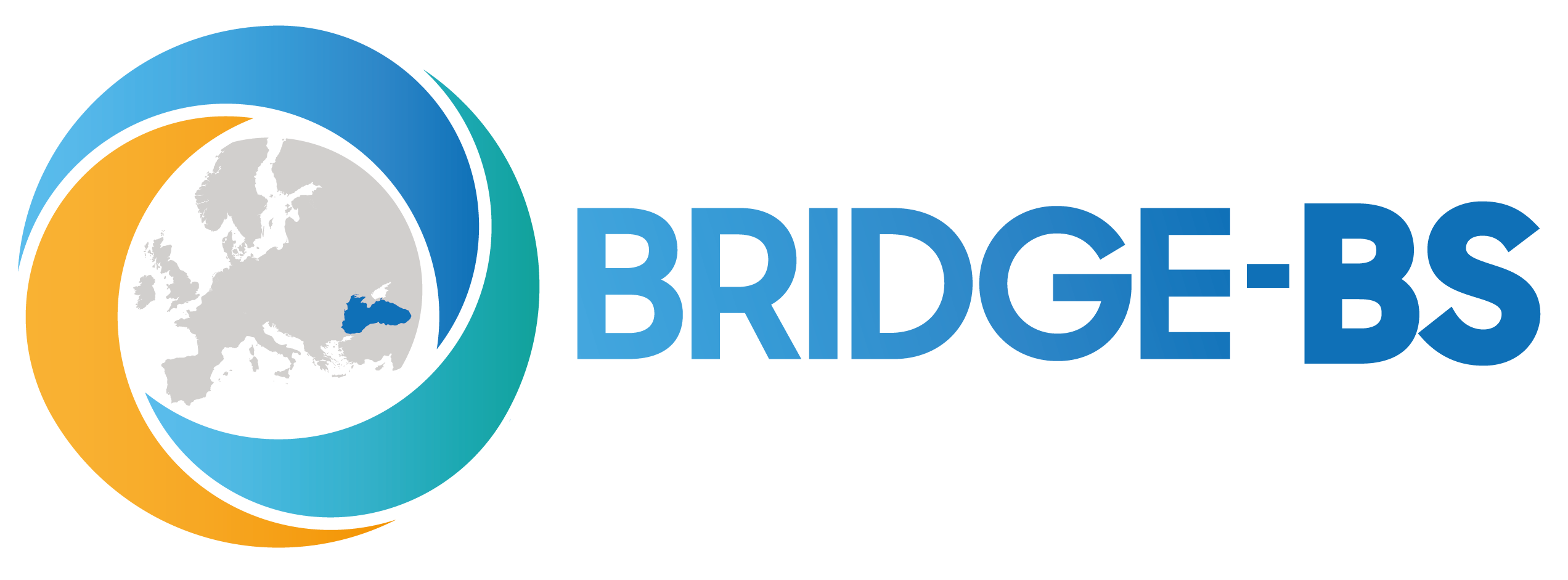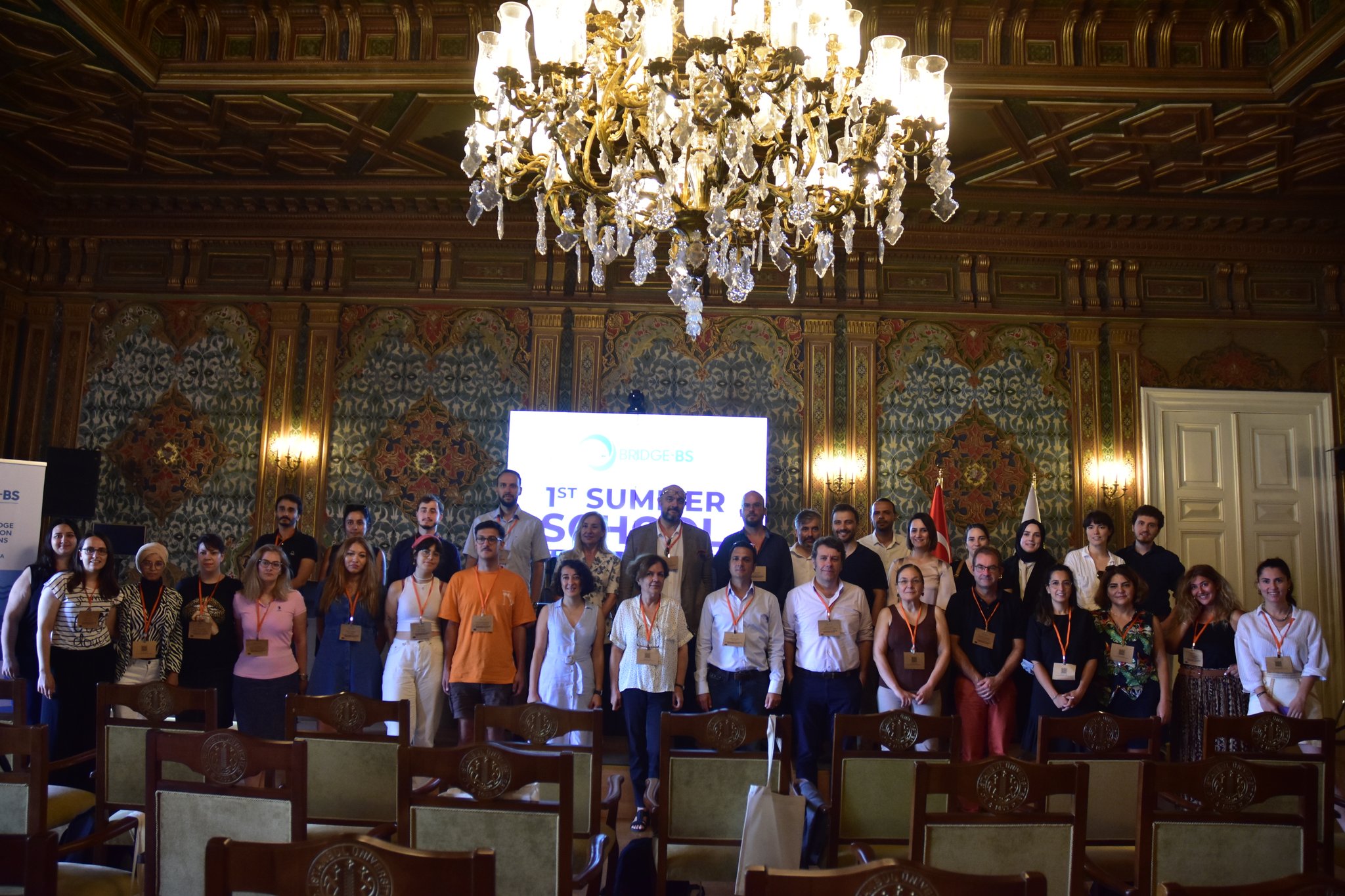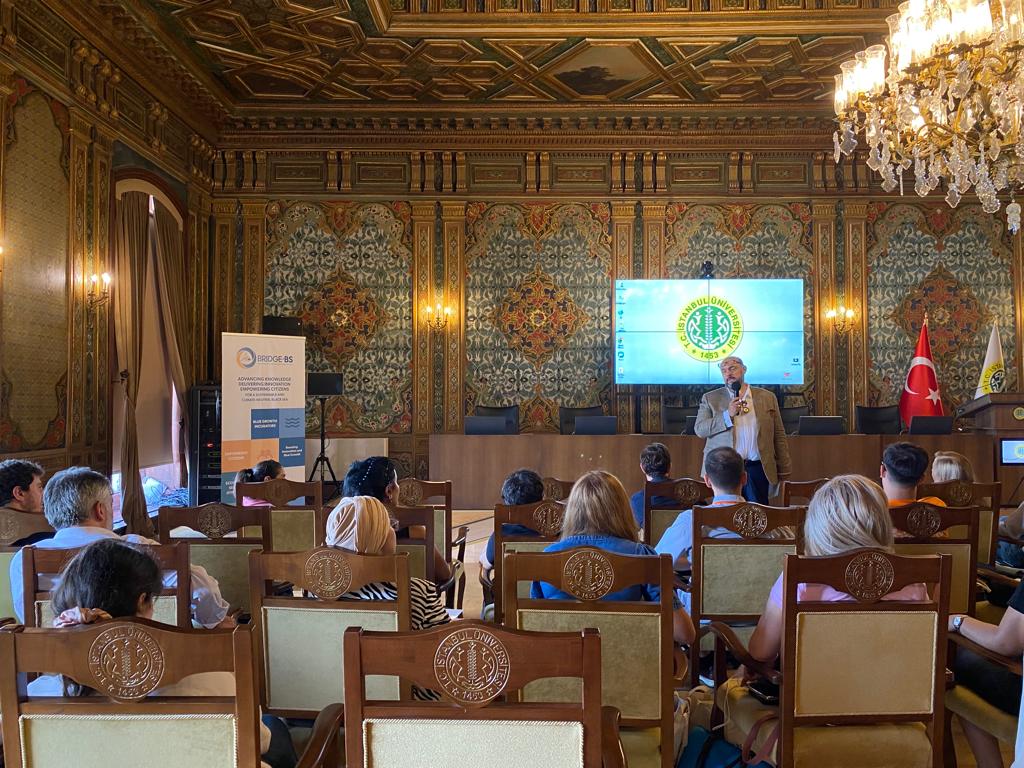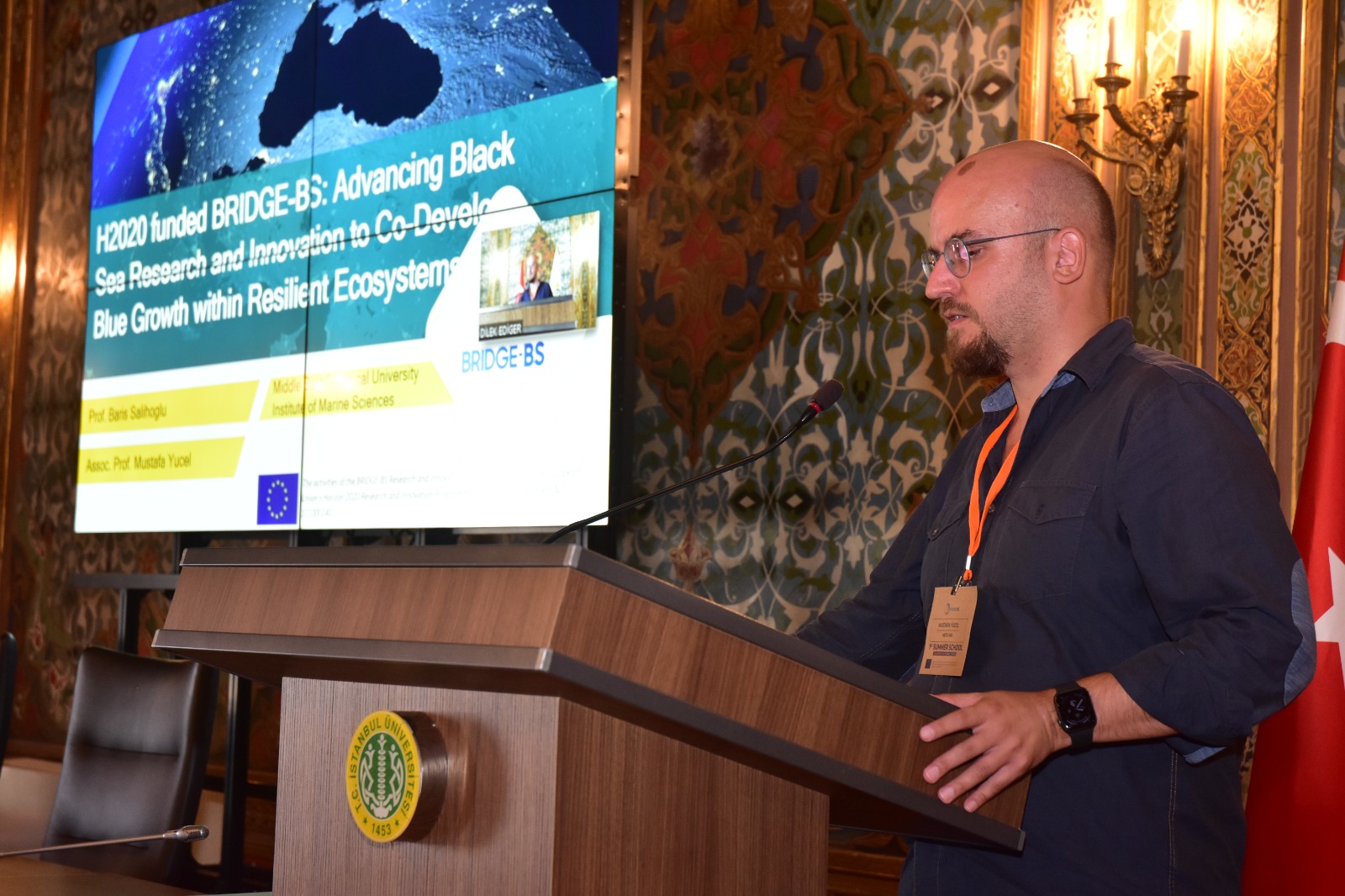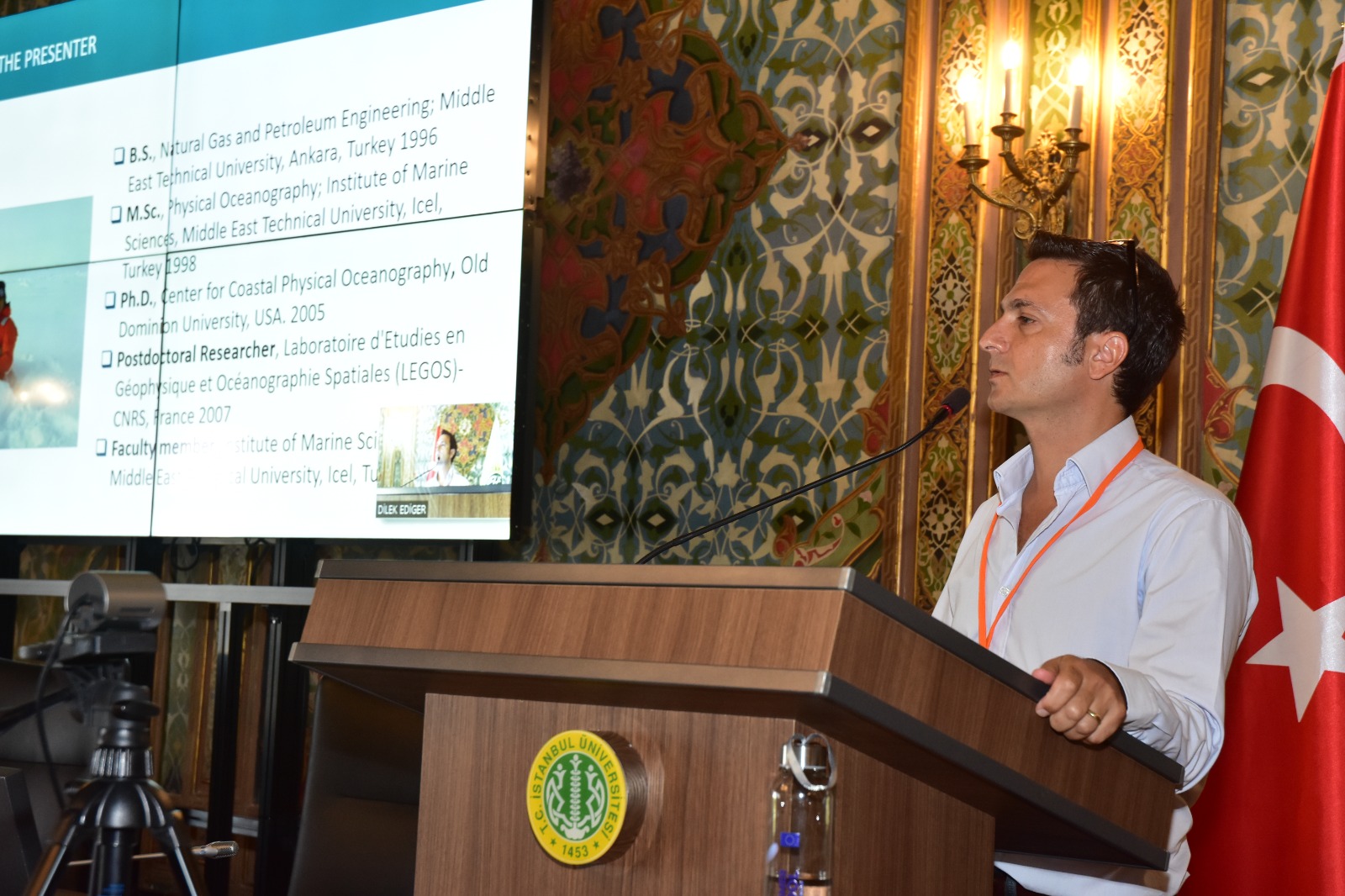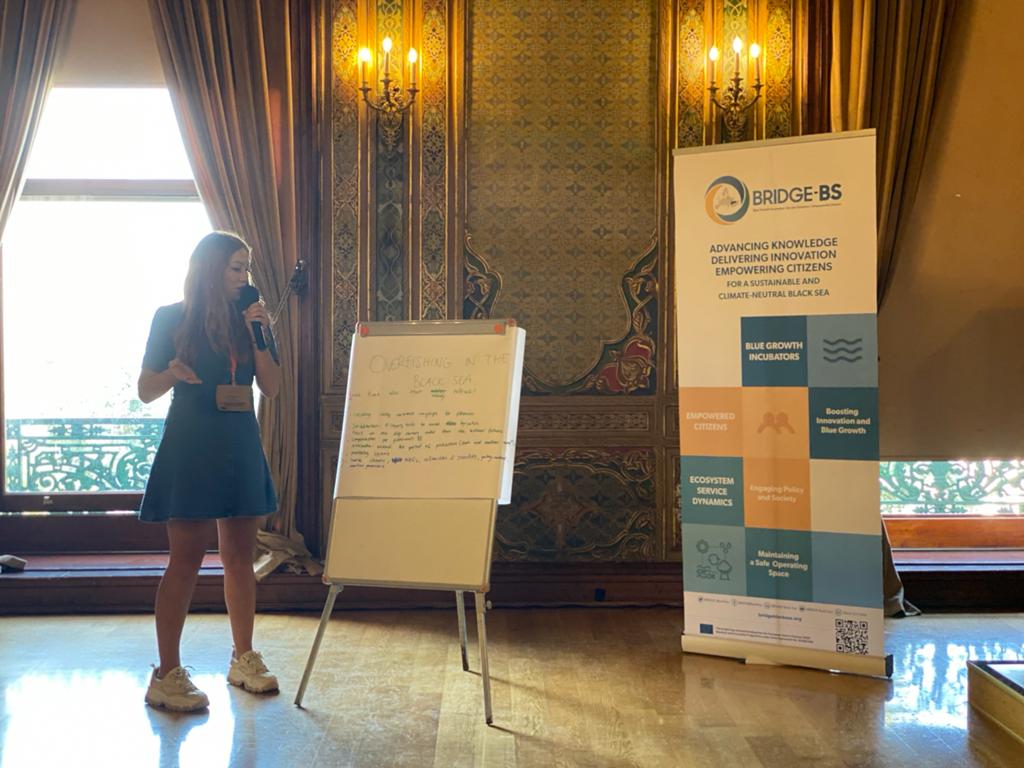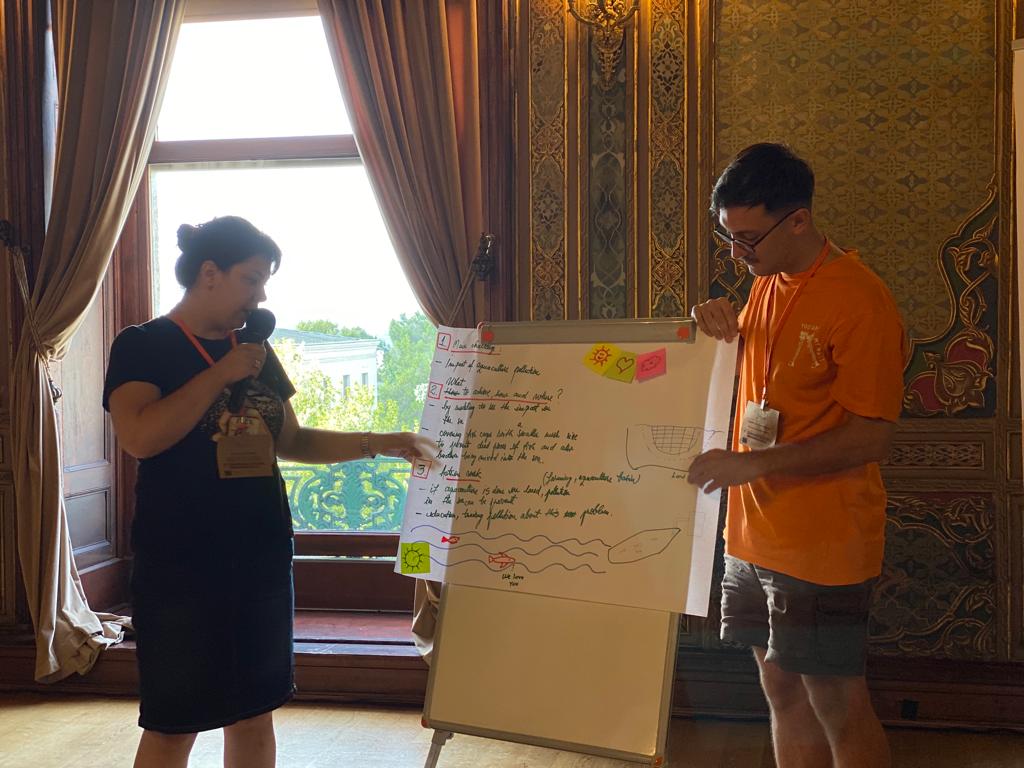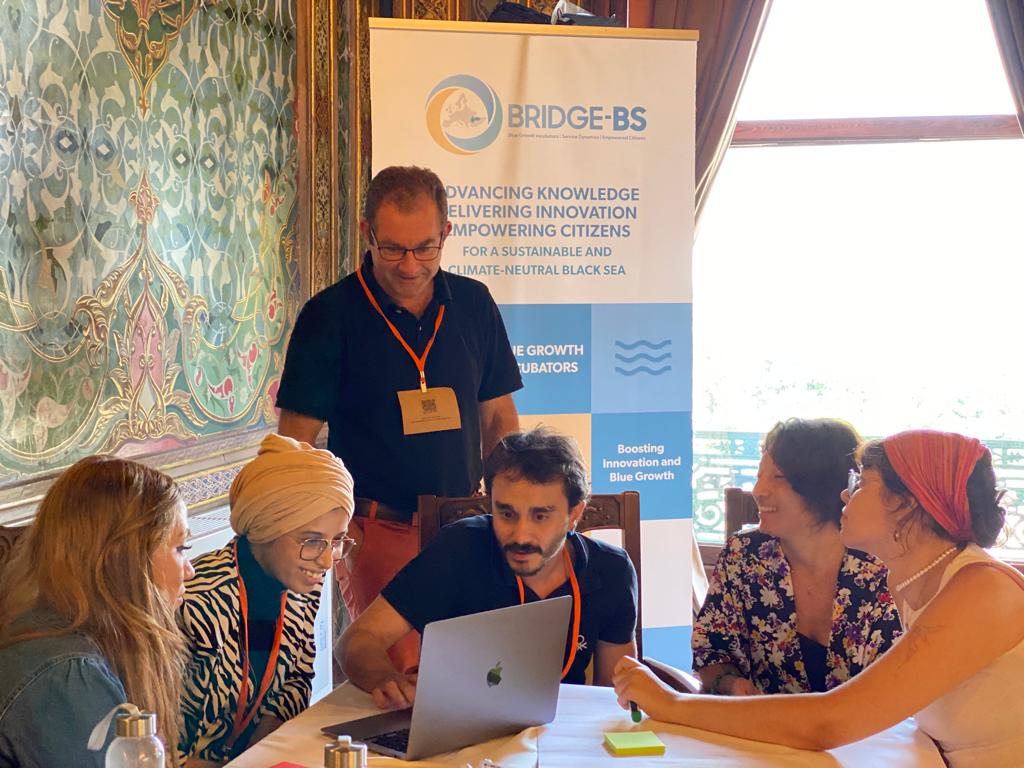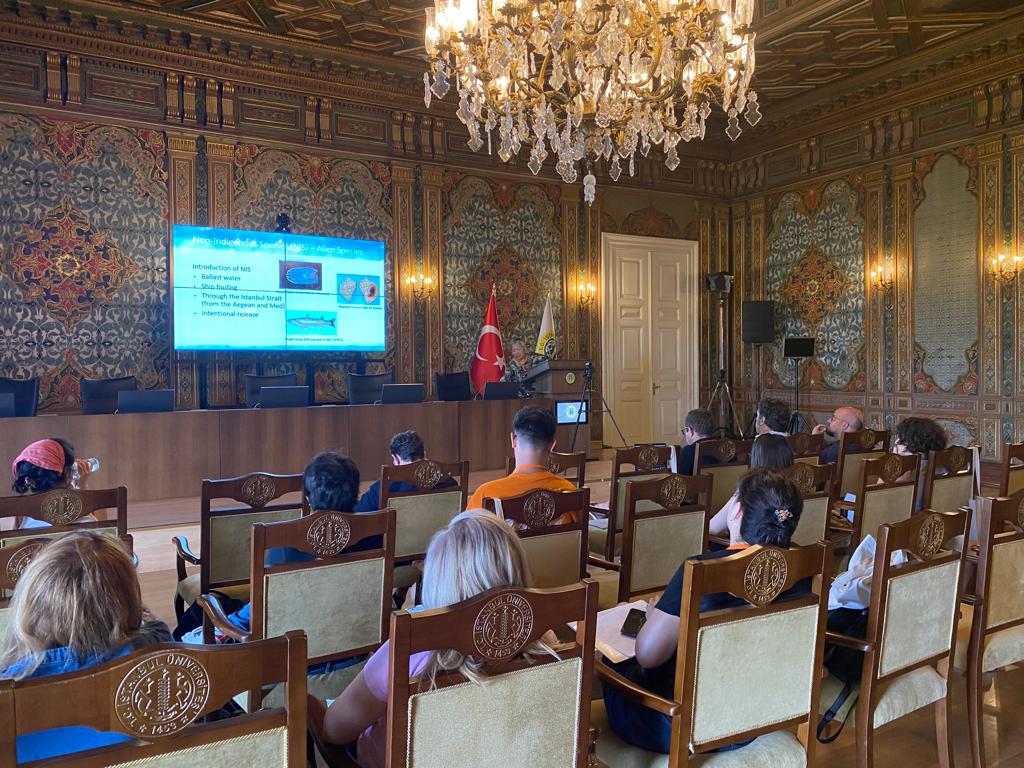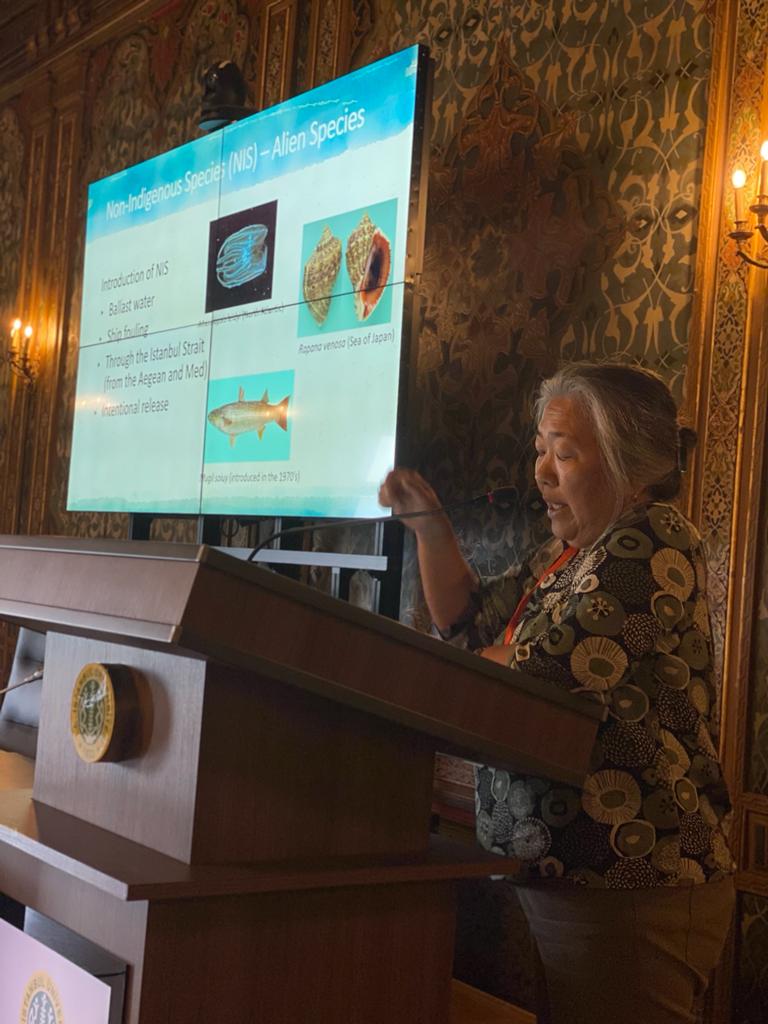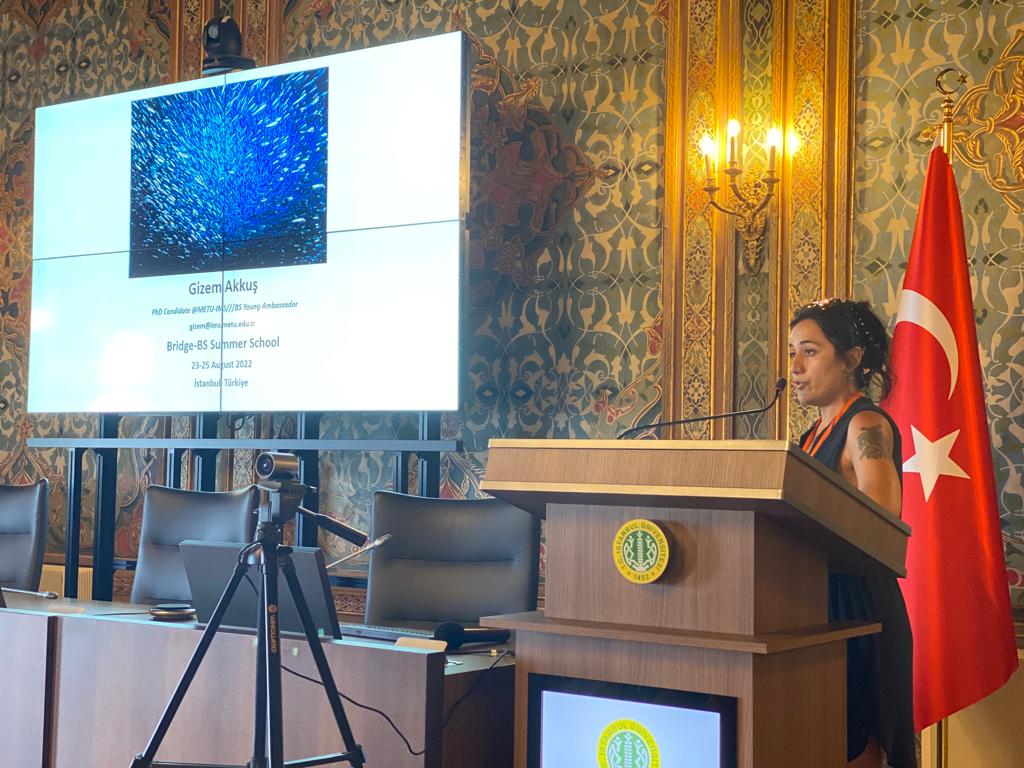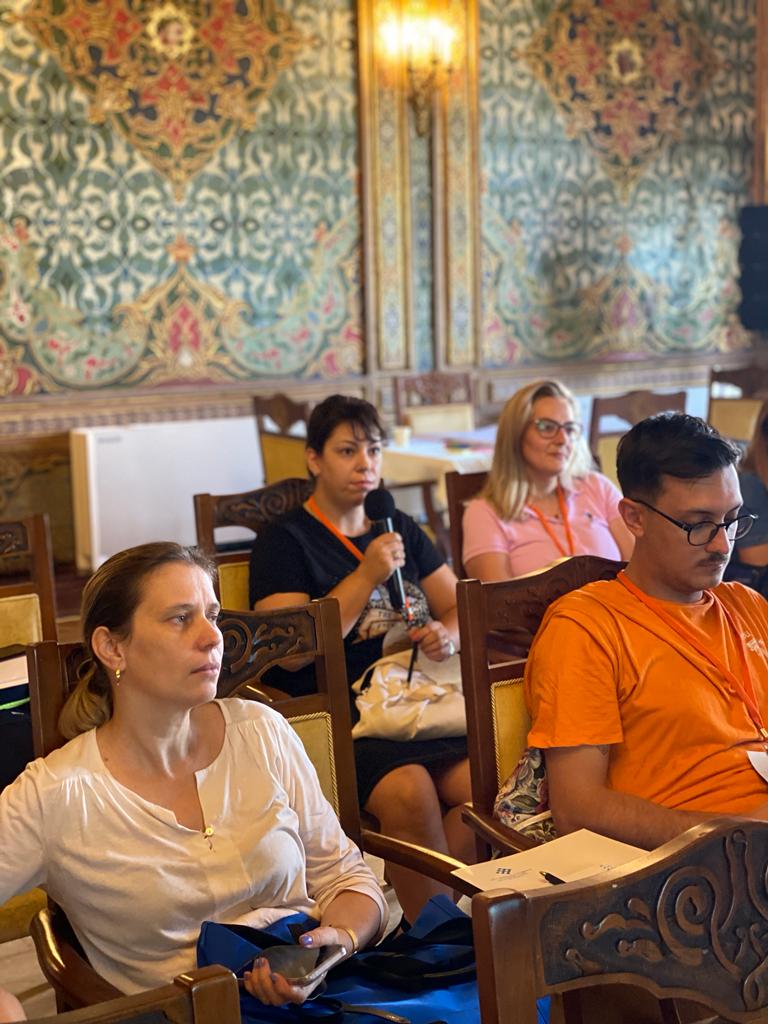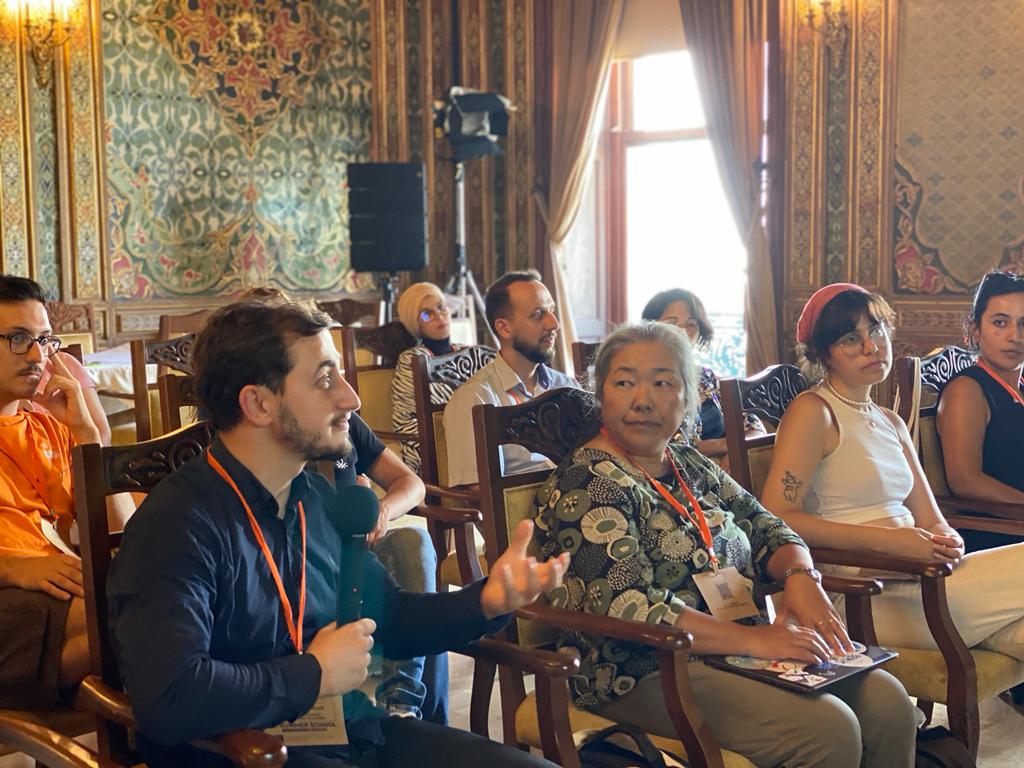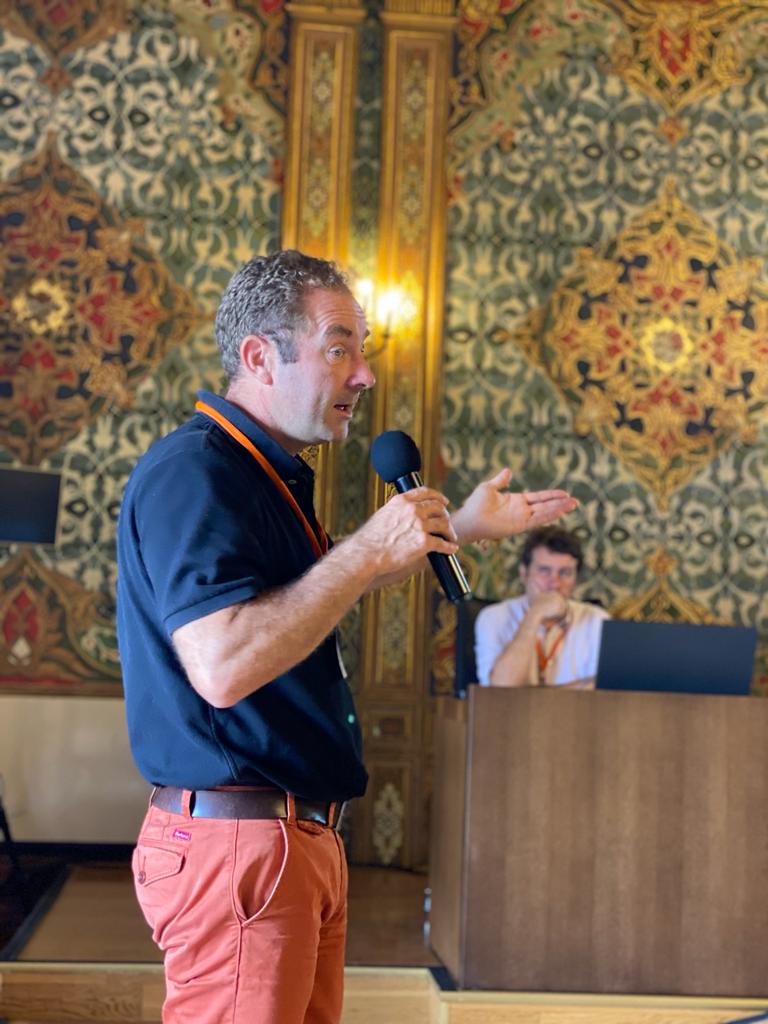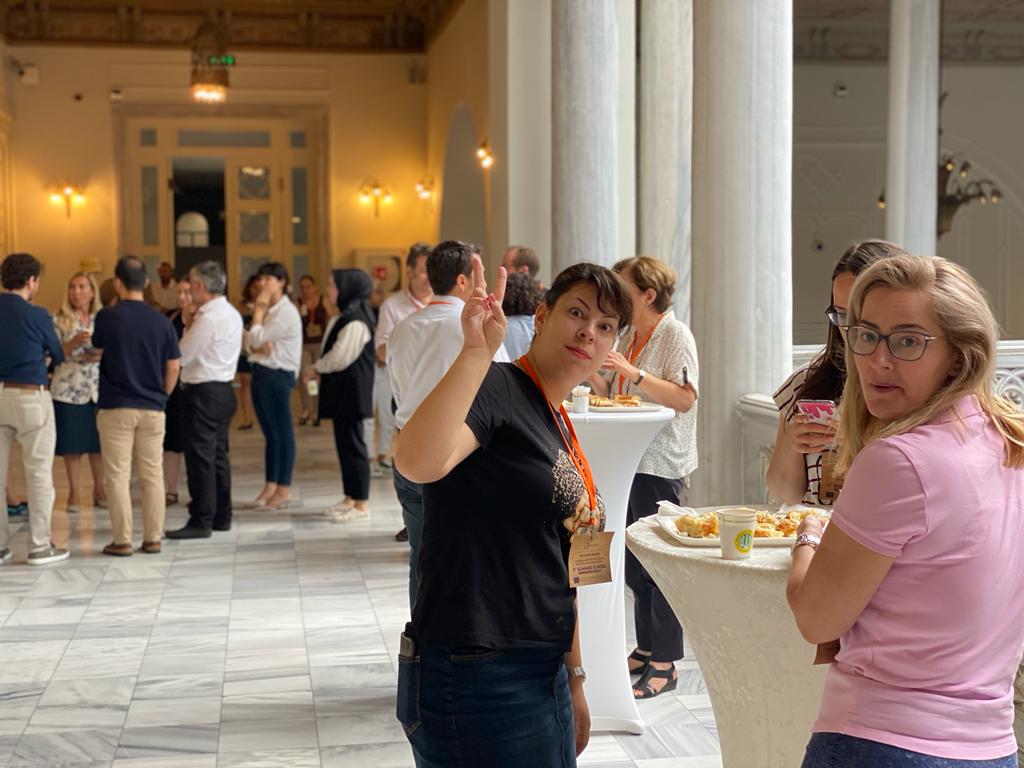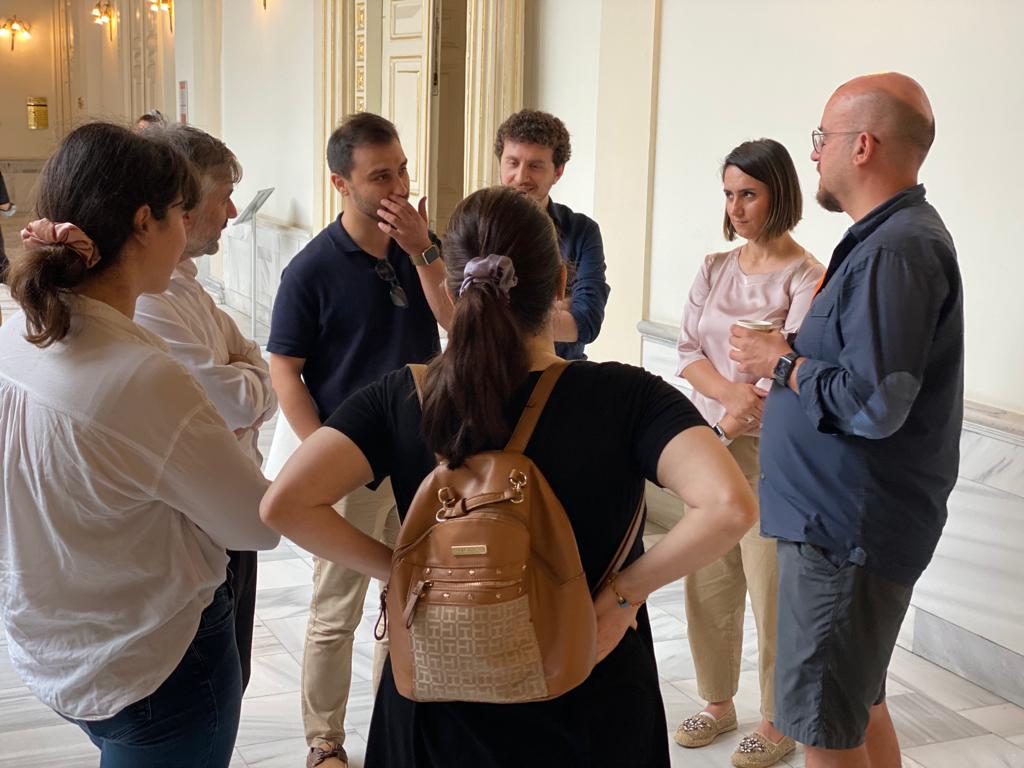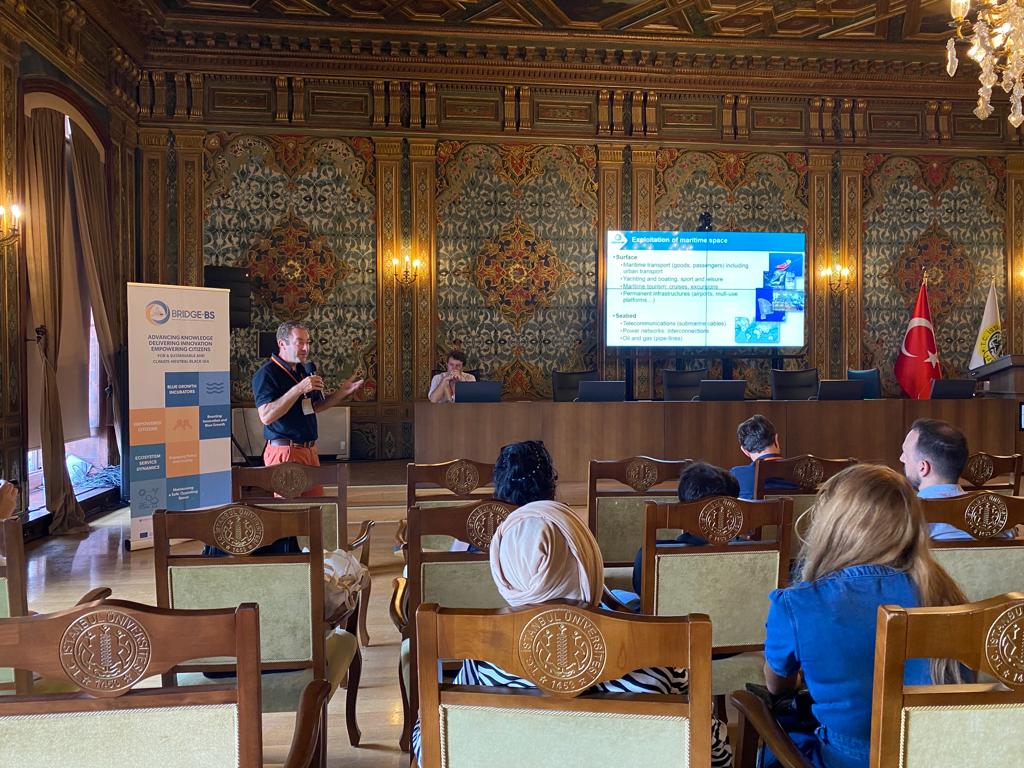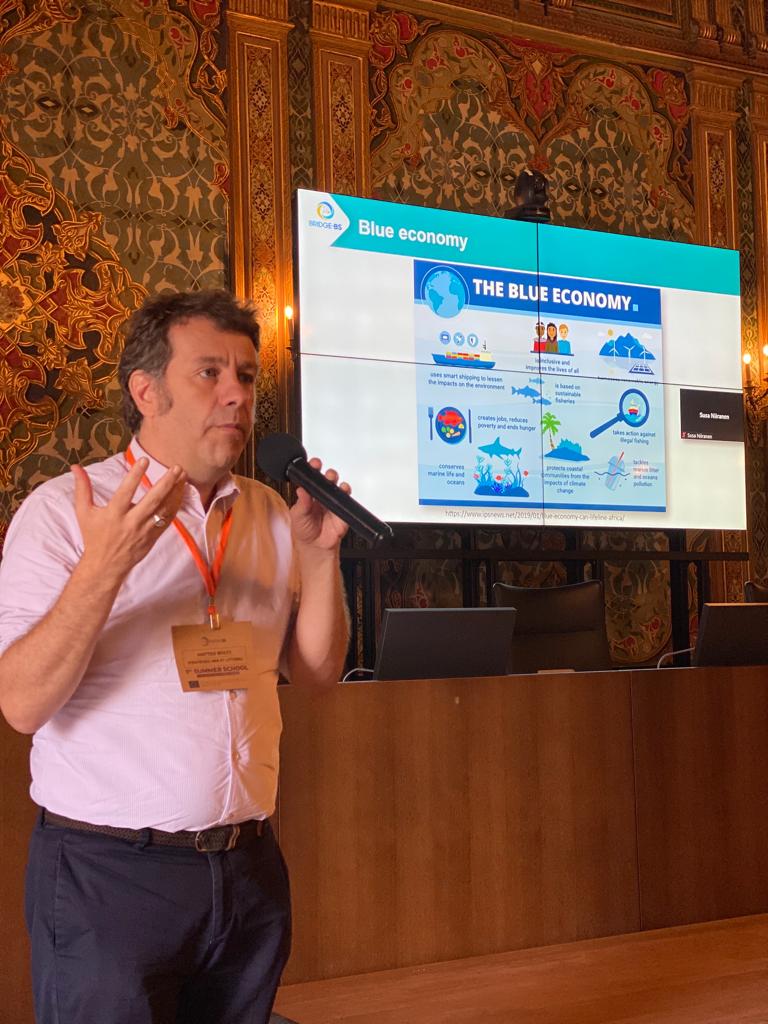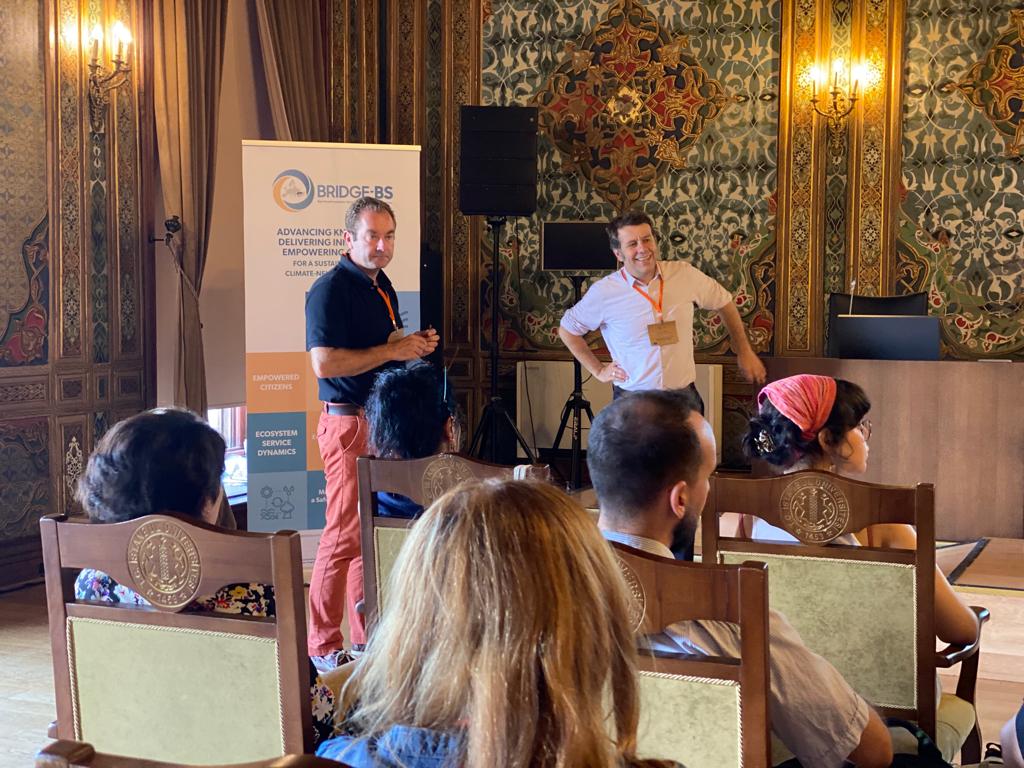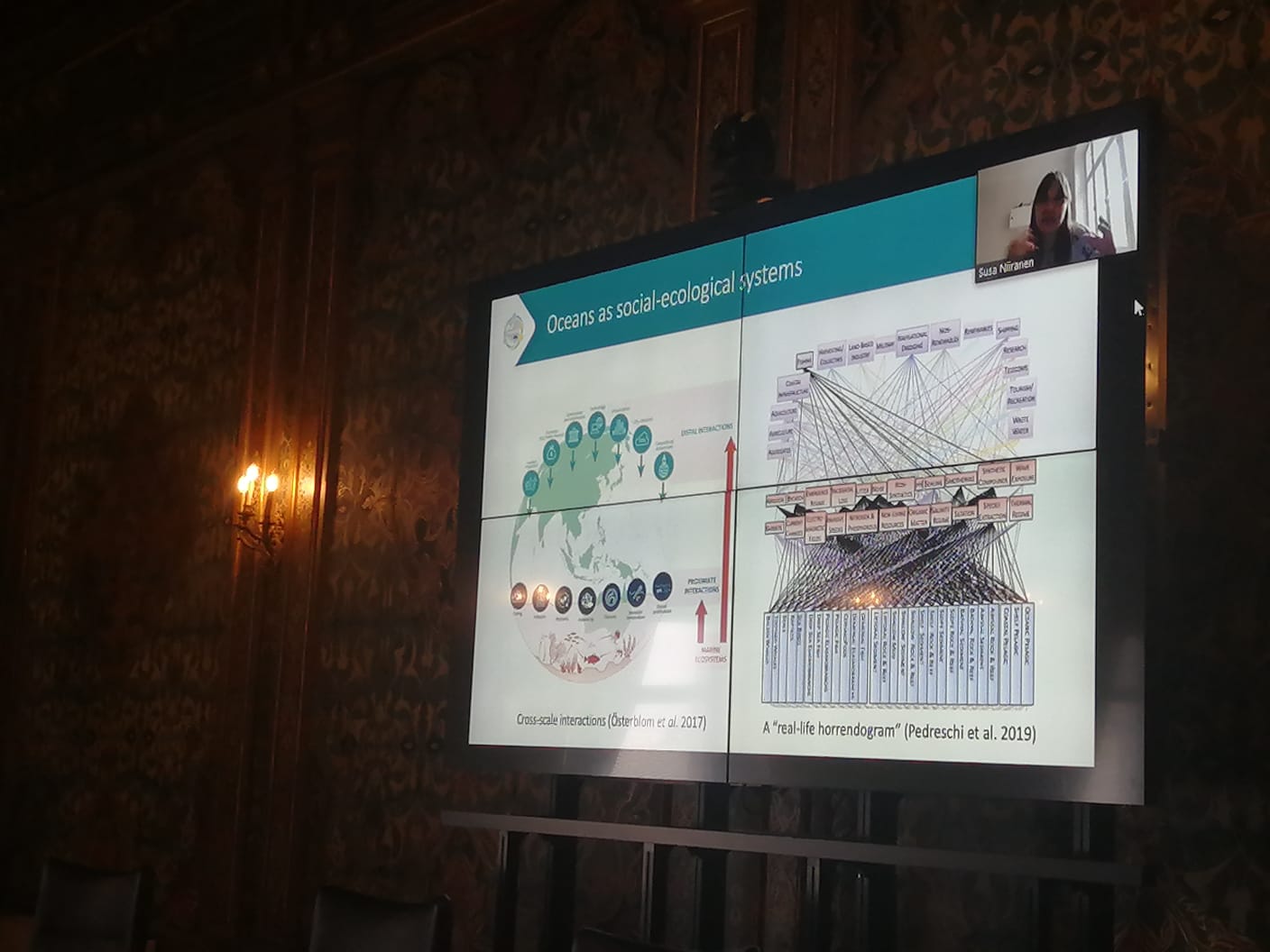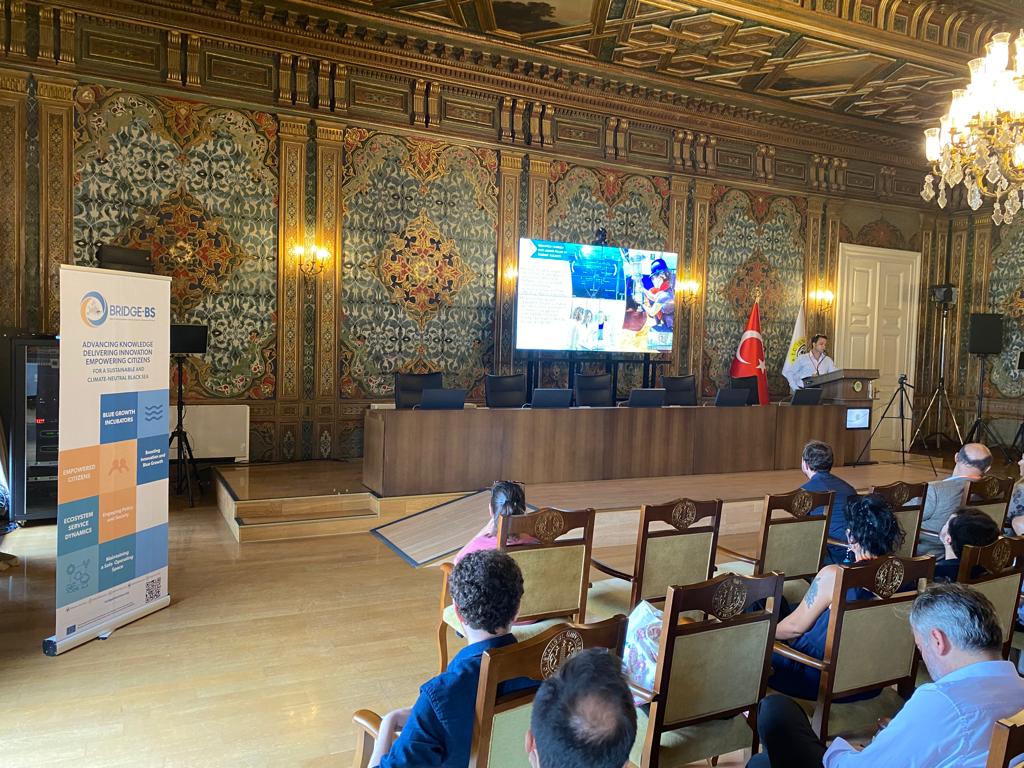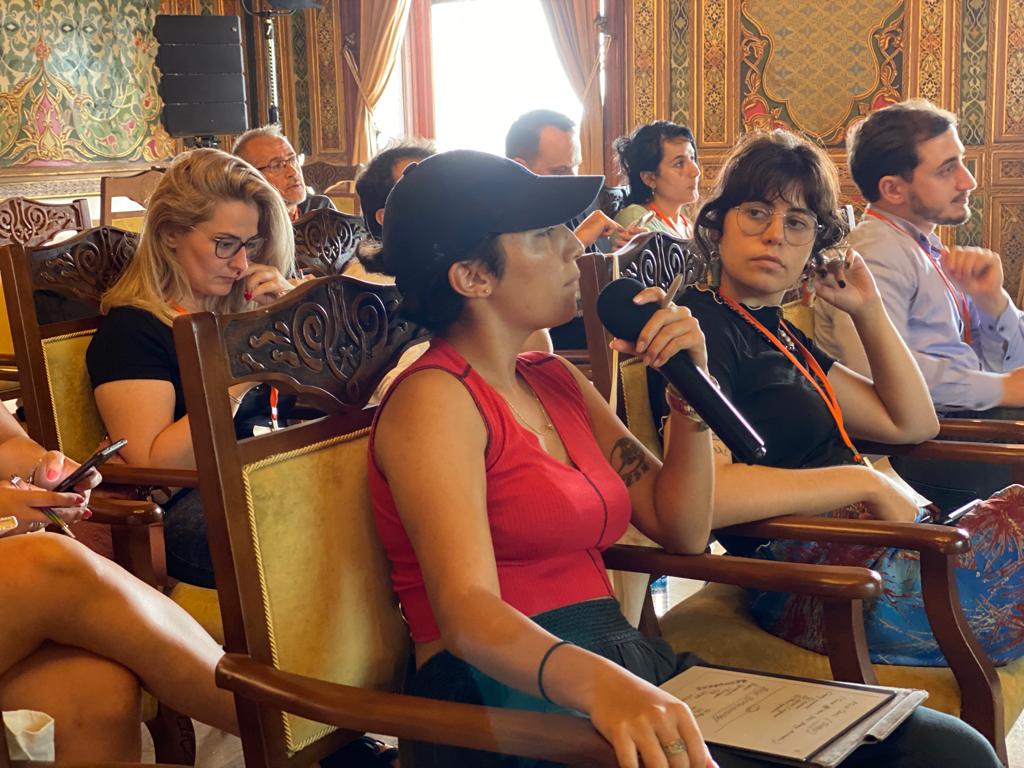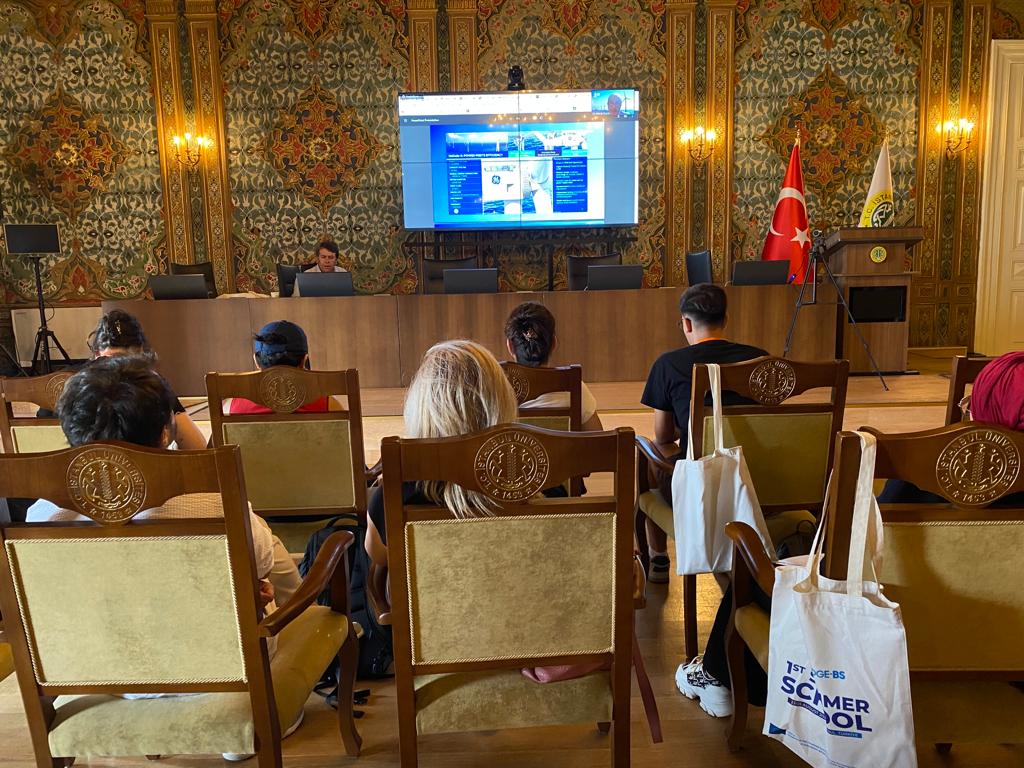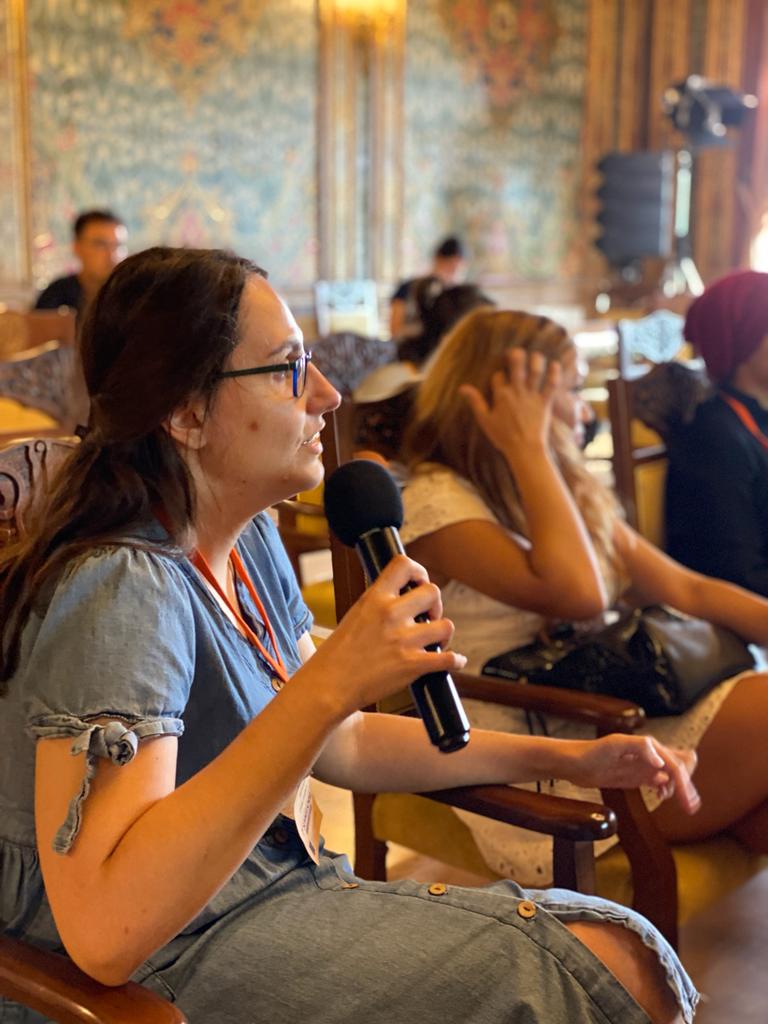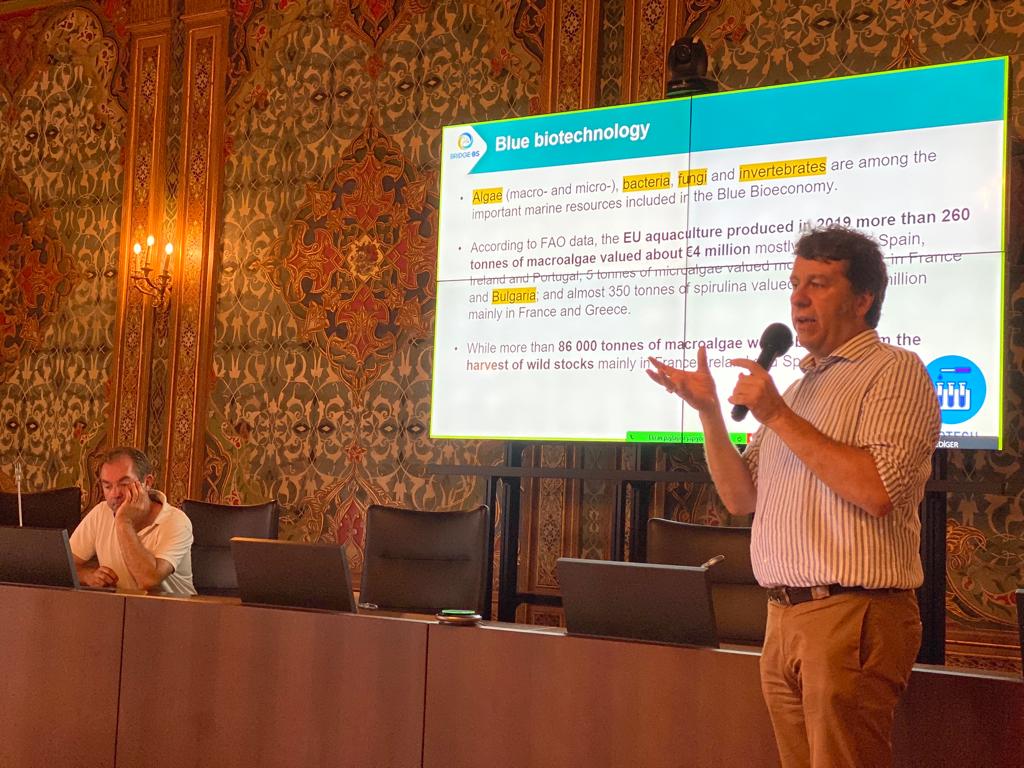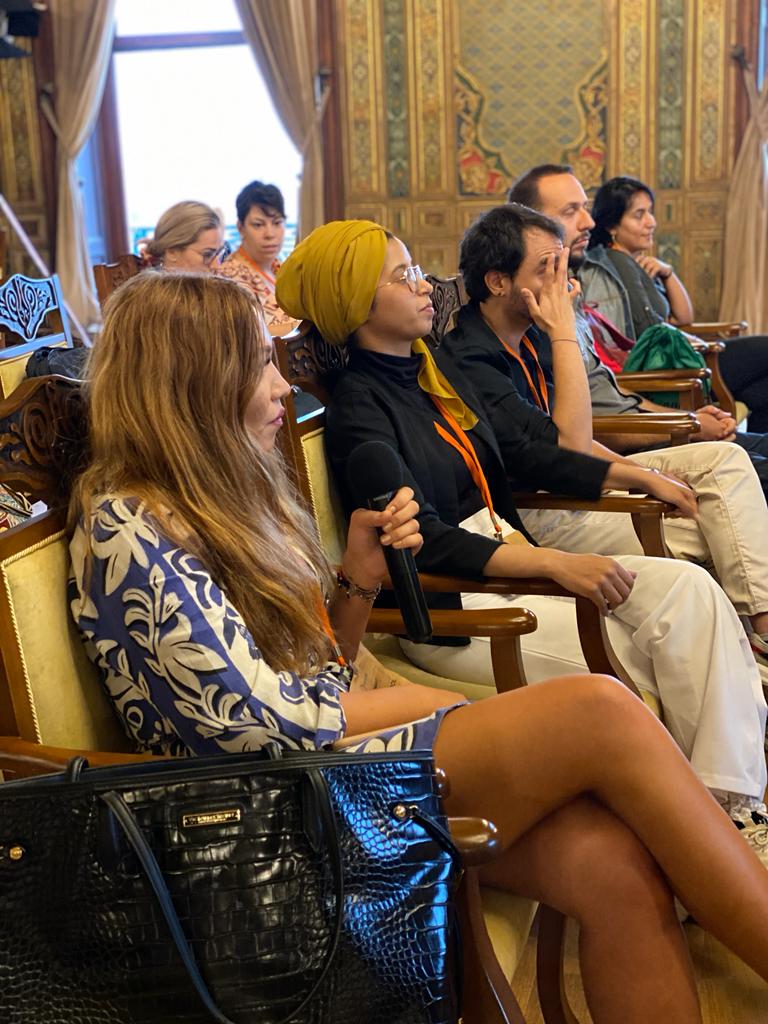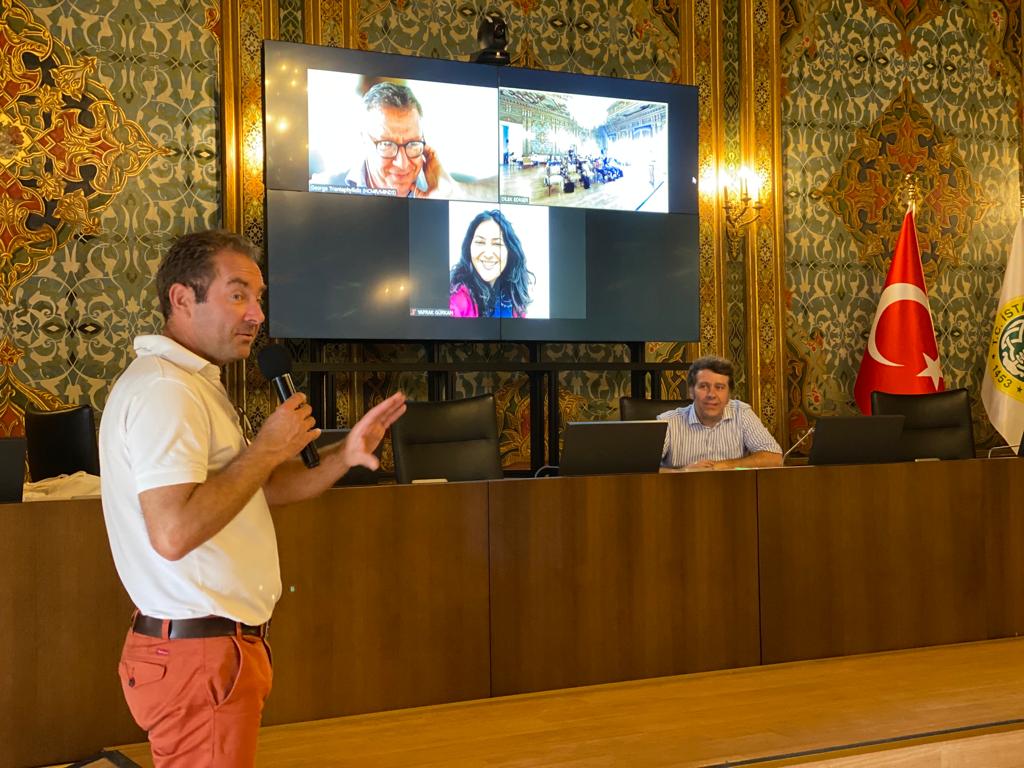The 1st Summer School of the H2020 BRIDGE-BS was held on 23-25 August in Istanbul, Türkiye!
The 1st BRIDGE-BS Summer School was conducted successfully on 23-25 August 2022 with the participation of 12 early career ocean professionals from Black Sea countries.
During the summer school, leading researchers and blue economy experts from across Europe shared the fundamentals of marine science and sustainable blue economy in the Black Sea, and attendees had a chance to establish a great network and strengthen the exchange of information on the blue economy in the Black Sea.
The 1st day of Bridge-BS Summer School started with the welcoming speeches of Cem Gazioğlu, Director of Istanbul University Institute of Marine Sciences and Management, and project coordinators Baris Salihoglu and Mustafa Yucel from Middle East Technical University Institute of Marine Sciences. The opening session continued with an introduction to the oceanography lecture of Baris Salihoglu, where the ECOPs had a chance to hear the fundamentals of marine science and the Black Sea.
In the next session, attendees had the chance to listen to Resilience of Ecosystems and learn more about what we can do for resilient seas and oceans from Susa Niiranen, Stockholm Resilience Centre. Then, focusing on marine living resources, Frédérick Herpers and Matteo Bocci from SML overviewed trends, challenges, and opportunities in fisheries and aquaculture. Here, attendees experienced an interactive session where they could share questions and express ideas. While coming to an end, Gizem Akkuş from Middle East Technical University Institute of Marine Sciences shared her experiences as a Black Sea Young Ambassador and Ph.D. student researching Marine Living Resources and fish stock assessment. With a speech from Ayaka Amaha Ozturk of Türk Deniz Araştırmaları Vakfı (TUDAV), the lecture session came to a close.
In her speech, she emphasized the threats to marine life and suggested ways to protect it while fostering a sustainable blue economy. An interactive workshop concluded on the first day of the BRIDGE-BS summer school after a series of interesting and motivating presentations. As part of a group project, ECOPs gathered to discuss the main issues facing marine living resources and offer solutions for a healthy Black Sea.
The 2nd day started with a speech by Yana Popova from Marine Cluster Bulgaria on Virtual Blue Career Center, which was established as part of BRIDGE-BS to raise awareness of the workforce and employability in Blue Economy services. An interactive workshop led by Frédérick Herpers and Matteo Bocci of Stratégies Mer et Littoral SAS concluded the day. During the discussion, attendees focused on Renewable Energy in the Black Sea and exchanged information on trends, challenges, and opportunities focusing on Renewable Energy in the Black Sea.
The next session was a talk on how to advance and promote sustainable offshore wind technology by Arthur Serment of Pôle Mer Méditerranée. Murat Durak from Dured Towea gave a speech to cap the event, highlighting some of the most successful wind energy projects. The day proceeded with group work, including Black Sea challenges, Blue economy opportunities, and innovative ideas for the sustainable Black Sea. ECOPs came together this time for Renewable Energy and pitched their suggestions for the better-valued Black Sea they want. Blue Biotechnology was another Blue Economy sector with great potential in the Black Sea. After the introduction to Blue Biotechnology, George Triantaphyllidis from HCMR presented the possible benefits of Blue Biotechnology for the Black Sea. In his presentation, he showed the best practices in different regions to pave the way for further applications in the Black Sea region. As a concrete example of the Blue Biotechnology sector, Murat Telli, the founder of Beta ALG Biotechnology, introduced a start-up company that conducts projects on microalgal biotechnology to develop innovative products within the concept of green technology for the food and cosmetic sectors. The 2nd day was closed with another workshop with a focus on Blue Biotechnology. ECOPs went over possible challenges and developed solutions based on their professions in multitrophic aquaculture, energy, and more to support the blue biotechnology sector in the Black Sea.
3rd day of BRIDGE-BS summer school started with a highly inspiring lecture by Mustafa Yucel from the Middle East Technical University Institute of Marine Sciences on the deep sea, its ecosystem services, and Blue economy potential in the Black Sea region. As a significant Blue Economy sector for Black Sea, Frédérick Herpers, and Matteo Bocci from Stratégies Mer et Littoral SAS (SML) moderated a session where attendees could hear more on Coastal and Maritime Tourism and address their questions to experts. In the next session, Mamuka Berdzenishvili from the Tourism 4.0 initiative shared with us the innovation potential within the tourism ecosystem with the help of critical enabling technologies from Industry 4.0. The session continued with Almıla Kından Cebbari from Foundation for Environmental Education in Türkiye. In her informative speech, she briefed the coastal tourism around the Black Sea and the iconic Blue Flag as one of the world’s most recognized voluntary awards for beaches. The first group work of the day was held with a specific focus on Coastal and Maritime Tourism! There were a lot of creative ideas to identify challenges of sustainable coastal and maritime tourism in the Black Sea and develop solutions to support this Blue Economy sector in the region.
With extensive and catchy topics shared by leading researchers and experts, as well as interactive group works on the blue economy in the Black Sea conducted by participants, the 1st Summer School of BRIDGE-BS has been one of the most significant events in the blue economy field. Stayed tuned for the 2nd Summer School.
